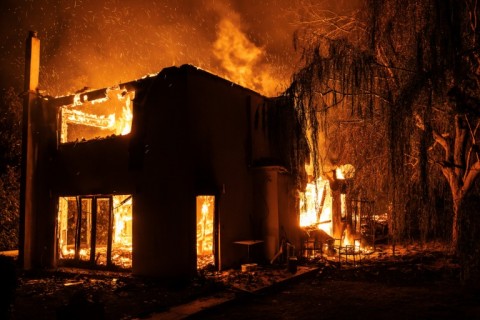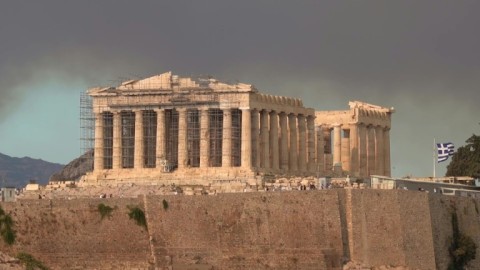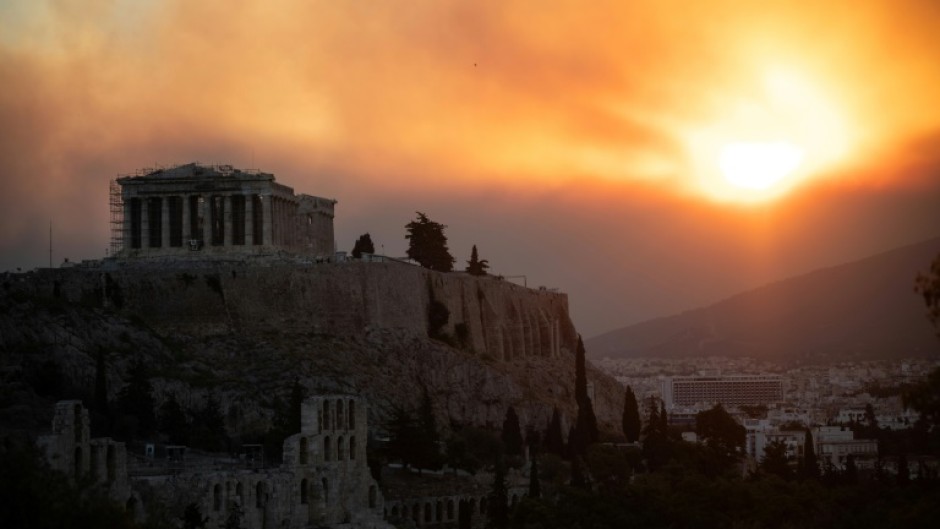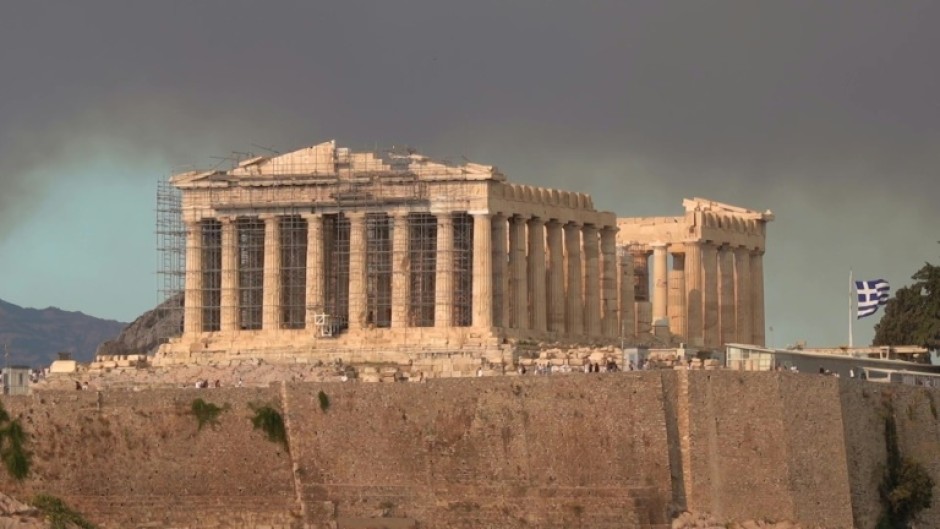Thousands of people living around Athens fled their homes on Monday, including in the historic town of Marathon, as a huge wildfire front crept closer to the capital despite "superhuman" efforts to contain the blaze, officials said.
Authorities ordered at least five more communities and two hospitals northeast of Athens to leave after eight nearby villages, including Marathon, were told to evacuate on Sunday.
Marathon's mayor Stergios Tsirkas said the town, which gave its name to the long-distance race that is the centrepiece of the Olympics, was facing a "biblical catastrophe".
A 30-kilometre long wall of flames, more than 25 metres high in places, was moving towards Athens, the ERT public broadcaster reported.
The smell of smoke drifted through Athens' centre as thick grey clouds engulfed Mount Pentelicus, also known as Mount Pentelikon, which looms above the capital and is known for producing the marble used in the Acropolis and other ancient buildings.
Eight people have been hospitalised with respiratory problems and authorities opened the Olympic stadium in northern Athens to house those fleeing.
"Civil protection forces battled hard throughout the night, but despite superhuman efforts, the fire evolved rapidly," fire brigade spokesman Vassilis Vathrakogiannis said.
"At this moment it has reached Mount Pentelicus and is headed in the direction of Penteli," he added.
A children's hospital and a military medical facility in Penteli were evacuated at dawn, Vathrakogiannis said.
The destruction revived memories of the Mati disaster, the coastal area near Marathon where 104 people died in July 2018 in a tragedy later blamed on evacuation delays and errors.

The summer wildfire season in Greece this year has seen dozens of daily blazes after the Mediterranean country recorded its warmest winter and the hottest June and July since reliable data collection began in 1960.
Temperatures around Athens are forecast to peak at 39 degrees Celsius on Monday, with wind gusts of up to 50 kilometres per hour.
More than 670 firefighters with 183 vehicles and 32 aircraft were battling the blaze, the spokesman said.
- 'Engulfed in flames' -
"Forest fire near you. Follow the instructions of the authorities," said SMS messages sent to people in the Attica region, indicating in which direction to flee.
Marathon's 7,000 residents were told to head for the coastal town of Nea Makri.
"We are facing a biblical catastrophe," said Marathon's mayor. "Our whole town is engulfed in flames and going through difficult times," he told the Skai television channel.
Civil Protection Minister Vassilis Kikilias had warned Saturday that half the country was under a high-risk warning for fires due to high temperatures, wind gusts and drought conditions.
On Monday he said that the fire that broke out on Sunday afternoon near the town of Varnavas spread even though a water-bombing aircraft reached the area in just five minutes.
"We're working 24-hour shifts, all of us," said fireman Marinos Peristeropoulos.
"The fire spread very quickly because of the strong wind," he told AFP near one of the hotspots in Grammatiko.

The rising temperatures are leading to longer wildfire seasons and increasing the area burnt in the flames, according to the United Nations Intergovernmental Panel on Climate Change.
Other parts of Europe are also struggling with high temperatures this week.
In Rome, temperatures were expected to reach 38 Celsius Monday and remain around 36 Celsius this week.
In the southern Netherlands, temperatures between 32 and 35 degrees Celsius are expected, made worse by high humidity.
By Anna Maria Jakubek With Marina Rafenberg In Athens


